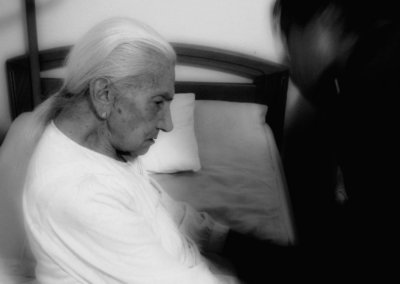Doctors in the Netherlands can no longer be prosecuted for carrying out euthanasia on dementia patients who have previously given written consent.
Previously, those with dementia would need to reconfirm their earlier request.
But the Dutch Supreme Court ruled earlier this month this was no longer necessary.
“A doctor can carry out an (earlier) written request for euthanasia from people with advanced dementia,” the Supreme Court said in a summary of its decision.
The ruling means another legal safeguard has been removed.
The devastating move comes after a Dutch doctor was taken to court for carrying out an assisted suicide on a patient with Alzheimer’s.
The vulnerable patient had earlier written a directive asking for euthanasia in the event that she had been admitted to a nursing home due to dementia, but indicated she wanted to determine when “the time was right.”
Once in the nursing home, she gave “mixed signals” about wanting to die.
And in the days leading up to the killing, the patient affirmed her desire to live, saying “I don’t want to die” on several occasions.
Despite her requests, a doctor in “close consultation” with her family decided that she should receive an assisted suicide because of her prior statement.
The doctor slipped a sedative into the woman’s coffee to relax her before administering the lethal injection.
During the assisted suicide, the patient awoke and started to to resist the procedure causing the doctor to ask the family for help in holding down the vulnerable woman down while they finished the procedure.
In the court case that followed, prosecutors argued the doctor did not properly consult with the 74-year-old patient.
“As long as the woman was able to communicate, the nursing home doctor should have kept talking to her about her desire to live or to die,” reads a statement from the prosecutor’s office.
“And as long as that conversation gave cause for doubt, the nursing home doctor should have refrained from euthanasia.”
However, the doctor has since been acquitted of any wrongdoing by a Dutch court that ruled “all requirements of the euthanasia legislation” had been met.
The law change announced earlier this month means cases such as these likely won’t even reach the courtroom.
In the Netherlands, euthanasia is legal if the person is deemed to be experiencing “hopeless and unbearable suffering” and chooses to end their life.
The country’s only euthanasia clinic recently revealed that it had seen a 22% increase in requests from people seeking assistance to end their lives last year compared to 2018.
There was also a 37% rise in requests from dementia patients, from 70 in 2018 to 96 in 2019.











